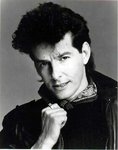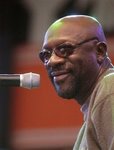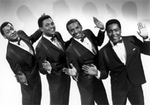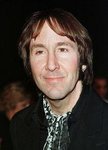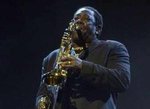Njaco
The Pop-Tart Whisperer
Thought I would start a thread on musicians that we love who have died. Maybe a sticky? Anyway, I got this idea because of the recent death from Boston lead singer and then this.....
Quiet Riot singer dies at 52 - CNN.com
Quiet Riot singer dies at 52
CNN) -- Kevin DuBrow, the lead singer of the 1980s heavy metal band Quiet Riot, has died, CNN has confirmed. He was 52.
DuBrow died at his home in Las Vegas, Nevada, according to TMZ.com. The Clark County coroner's office was examining the body to determine the cause of death, according to TMZ.
"I'm at a loss for words. I've just lost my best friend," Quiet Riot drummer Frankie Banali told CNN. "Out of respect for both Kevin and his family, I won't comment further. There's going to be a lot of speculation out there, and I won't add to that. I love him too much."
Quiet Riot hit the top of the charts with its 1983 album, "Metal Health," considered by some sources as the first heavy metal album to hit No. 1. The album was driven by the group's cover of Slade's "*** on Feel the Noize," which hit the Top 40.
The band's other hits included "Bang Your Head (Metal Health)" and another Slade cover, "Mama Weer All Crazee Now."
The band formed in the mid-1970s behind DuBrow and guitarist Randy Rhoads, who later joined Ozzy Osbourne's band and died in a tour accident. After several years, during which time the band disbanded, regrouped and built an audience, everything came together for "Metal Health," which put Quiet Riot in the vanguard of the Los Angeles heavy metal movement.
But the band's rushed follow-up, "Condition Critical," didn't do as well, and DuBrow started taking shots at other L.A. bands, such as Motley Crue and Ratt, according to Allmusic.com. Within a few years, the band had mutinied (leaving DuBrow at a hotel in Hawaii while other members returned to California, Allmusic's Eduardo Rivadavia observes) and taken on a new lead singer. The bad blood prompted a lawsuit from DuBrow.
By the 1990s tempers had calmed and the band got together again, putting out a live album in 1999 and a new studio set, "Guilty Pleasures," in 2001. The group's most recent album, "Rehab," came out last year.
Quiet Riot singer dies at 52 - CNN.com
Quiet Riot singer dies at 52
CNN) -- Kevin DuBrow, the lead singer of the 1980s heavy metal band Quiet Riot, has died, CNN has confirmed. He was 52.
DuBrow died at his home in Las Vegas, Nevada, according to TMZ.com. The Clark County coroner's office was examining the body to determine the cause of death, according to TMZ.
"I'm at a loss for words. I've just lost my best friend," Quiet Riot drummer Frankie Banali told CNN. "Out of respect for both Kevin and his family, I won't comment further. There's going to be a lot of speculation out there, and I won't add to that. I love him too much."
Quiet Riot hit the top of the charts with its 1983 album, "Metal Health," considered by some sources as the first heavy metal album to hit No. 1. The album was driven by the group's cover of Slade's "*** on Feel the Noize," which hit the Top 40.
The band's other hits included "Bang Your Head (Metal Health)" and another Slade cover, "Mama Weer All Crazee Now."
The band formed in the mid-1970s behind DuBrow and guitarist Randy Rhoads, who later joined Ozzy Osbourne's band and died in a tour accident. After several years, during which time the band disbanded, regrouped and built an audience, everything came together for "Metal Health," which put Quiet Riot in the vanguard of the Los Angeles heavy metal movement.
But the band's rushed follow-up, "Condition Critical," didn't do as well, and DuBrow started taking shots at other L.A. bands, such as Motley Crue and Ratt, according to Allmusic.com. Within a few years, the band had mutinied (leaving DuBrow at a hotel in Hawaii while other members returned to California, Allmusic's Eduardo Rivadavia observes) and taken on a new lead singer. The bad blood prompted a lawsuit from DuBrow.
By the 1990s tempers had calmed and the band got together again, putting out a live album in 1999 and a new studio set, "Guilty Pleasures," in 2001. The group's most recent album, "Rehab," came out last year.


